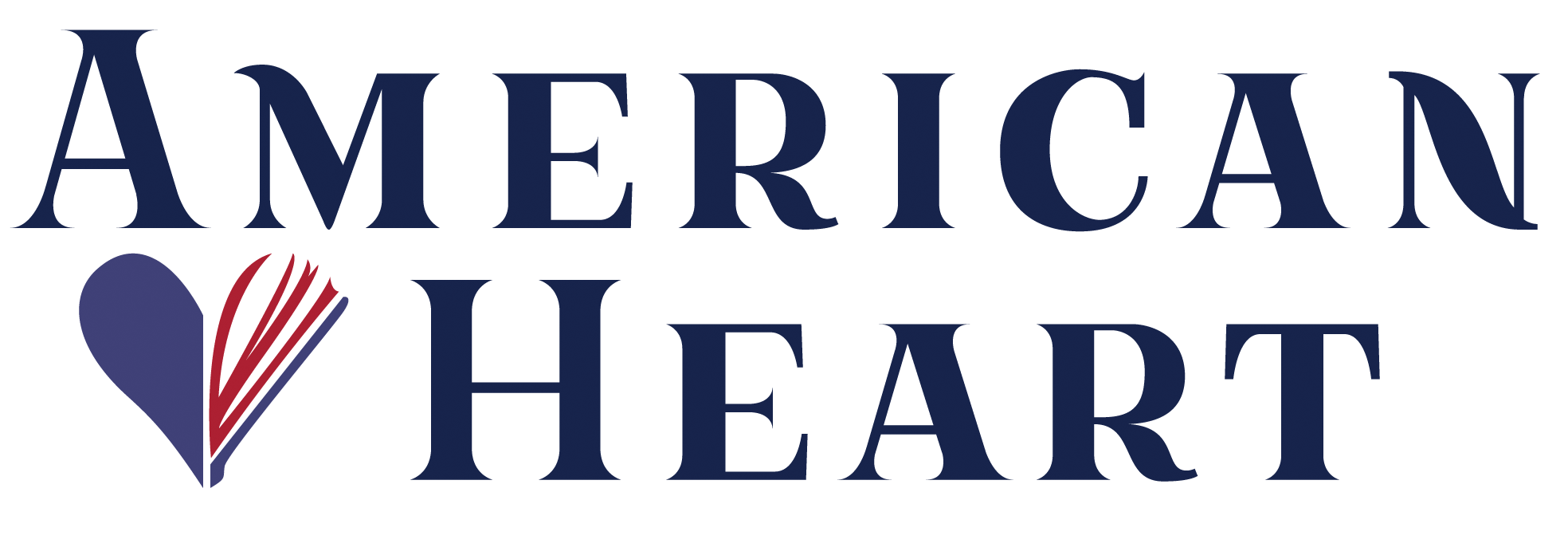Start reading this book:

Share This Excerpt
When Harper Higgins first had the idea to adopt the little one-eared dachshund from the Boston Humane Society, she didn’t think much about how he’d need to be walked even if it was raining outside. Or snowing, which it did six months out of the year in Boston. Sometimes seven or even eight.
Rain or shine, sleet or snow. That was reality with a dog. Not unlike the postal service.
When she first saw him on one of the local morning news shows, wearing his little yellow Adopt Me vest, Harper didn’t think much about any of the technical aspects of owning a pet. All she saw was that ear, or lack thereof, and she knew he was the dog for her.
Rembrandt had owned a dachshund. So had Picasso. And Andy Warhol, Jackson Pollock, and David Hockney. According to rumor, Leonardo DaVinci even had a dachshund. Allegedly, her name was Mona, and he often discussed his art with her. But that was unsubstantiated, so it didn’t count in Harper’s eyes. As an art historian, she was a stickler for that type of thing. History and legend were two very different things. One was steeped in reality and the other in fantasy. Harper lived in reality. Her feet hadn’t strayed from that territory since she was ten years old.
She liked it that way. So long as she lived in reality, she couldn’t have the rug swept out from under her again. Work hard, become independent, learn to take care of herself. Those were her ideals. Oh—and adopt one-eared dogs. That was a new one.
How could she not, though?
She was a bona fide expert on Vincent Van Gogh. He was her favorite artist. She couldn’t have adored his work more if he’d had two ears, or three, or four, for that matter. He was a genius. So the dog’s lone ear, plus the fact that he was a dachshund sold her on the idea.
She would have called it a sign, if she’d believed in that sort of thing, which she didn’t. But she’d taken one look at the dog, grabbed her keys, and driven straight to the animal shelter.
And now here she was—huddled beneath a tiny umbrella in the cascading rain—waiting for Vincent to select the precise blade of grass on which to pee.
“Come on, Vincent. It’s getting late.” She cooed, when what she really wanted to say was, “Any day now.”
Walks in the rain aside, she really did love the little guy. She simply had no idea what she was doing. She’d never had a dog before. Not even as a kid. Someone who knew more about dogs probably would have told her to stop walking around and to stay in one spot and wait for Vincent to do his business. Continual movement just meant new smells, new distractions. Someone who knew more about dogs also probably wouldn’t have let Vincent’s leash slip through her fingers when Vincent tore after the guy carrying the enormous basket of flowers.
One minute Harper was standing ankle-deep in rainwater with a leash in her hand and the next, that leash was trailing after Vincent like the tail on a kite as he ran headlong into trouble.
“Vincent, wait!”
Vincent didn’t wait. He didn’t even hesitate. He threw himself directly into the path of the man carrying the flowers. There was a loud thud. And a splash. And then the sky rained purple blooms in and among the raindrops.
“Vincent!” Harper ran after him.
The dog was standing on the center of the flower man’s chest, tail wagging, lone ear flapping in the wind of the storm, while the man lay flat on his back on the cobblestoned walkway. Harper dropped her umbrella and scooped him into her arms at once. The dog, not the flower man.
“Are you okay?” she asked, bending over the fellow and looking into his eyes to check for consciousness.
He frowned. Deeply enough to guarantee that yes, he was awake. And no, he was not a happy camper at the moment.
“I don’t know.”
Surrounded by pretty purple flowers, a frowning man had never looked quite so ethereal. They encircled him completely. Lying there in the water, with blooms scattered all about, he reminded Harper of Sir John Everett Millais’ famous painting, Ophelia. Except the subject of Ophelia was dead in a river. And this man was very alive—and by all appearances very grumpy—in a puddle of dirty rainwater.
Wincing, he pushed himself to his feet. “Damn it.”
“Are you hurt?”
“My ankle. I must have twisted it.” He looked down at his right hand. There was a trail of blood by his thumb. It mixed with the rain, thinning and lightening. If it had been oil paint, it would have been carmine red. “And I have a cut on my hand.”
“But you’re upright. That’s an improvement.”
He glared at her.
She glared right back.
She probably should have apologized on behalf of Vincent. But the truth was, she didn’t want to. I’m sorry were words that had never come easy to Harper. And this guy’s attitude was beginning to grate on her nerves.
She glanced at the flowers that lay at their feet. Violets.
Such a modest flower. Pretty enough. But lacking the colorful drama and splendor of the irises, sunflowers, or poppies that Van Gogh painted. She wondered if Van Gogh had ever painted violets before. Not to her knowledge. And if anyone in this day and age would know, it would have been Harper.
With her free hand, she took her wallet from her purse and pulled out a twenty. She glanced back down at the ground, the upended basket, and the wet, ruined, trampled violets ground into the cobblestones. The delicate petals had taken on the quality of crushed grapes on the pavement.
For good measure, she pulled out another twenty-dollar bill. “Here. Will this cover all of them? How much do you usually charge?” She offered the money to the man.
He made no move to take it, but rather scowled at the bills and then at her. So much for going the extra mile. She should have stuck to just the one twenty-dollar bill.
“What is that for?”
She waved the money around a bit. Bait. She wished he would go ahead and take it. She felt like an idiot just holding it like that. And it was getting all wet.
“For your flowers. I’m not sure what you charge for them. Will this be enough?”
His eyes narrowed. Piercing blue eyes, framed with tangled, wet, dark lashes. When he aimed his gaze directly at Harper, she had to remind herself to breathe for some strange reason.
“I wasn’t selling them.” He spat.
“Oh.” She blinked.
What on earth was he doing with a giant basket of violets? It wasn’t the sort of arrangement a man might give a woman. She’d just jumped to the logical conclusion that he was selling them. Was that really such a horrible thing to assume?
Judging by the look on his face, yes. Yes, it was.
His square jaw was practically throbbing with tension. And those blue eyes of his were so frosty a shiver ran up her spine. Or maybe the shiver was due to the fact that she was soaked to the bone.
“Is that what you think—that I sell flowers out of a basket on the street corner?” He made it sound like it was one step up from begging for spare change.
“Calm down. I thought you sold flowers. I didn’t say you were a panhandler.” She couldn’t help but cast a wry look at his clothes.
He was a mess. Enough of a mess to suggest he’d been a mess even before Vincent had knocked him down. Grass stains on the legs of his jeans, mud caked on his hiking boots, and a plain white t-shirt, soaked and transparent.
She had to give credit where credit was due though and, in this instance, it was due somewhere beneath that dampened t-shirt that clung to muscles the likes of which she wasn’t sure she’d seen on an actual living, breathing man. Unless Channing Tatum counted as human, and she wasn’t entirely sure he did. He was more of a mythical creature. Like a unicorn.
The man standing in front of her was looking more like a mythical creature himself with each passing second. Only not a unicorn. More like a dragon. A dragon of the fire-breathing sort.
“No, you didn’t think I was a panhandler. You just thought I hung around on the street corner selling violets. For your information, I’m not a flower girl.”
She willed herself not to look at his biceps, straining the sleeves of his t-shirt. But mid-blink she found herself sneaking a glance at them again. He was right about one thing. He most definitely was not a girl. Not a flower girl or any other variety.
“It was a simple misunderstanding.” She jammed the money back into her wallet.
Great. Now all of her other money would be drenched as well. And her wallet. And the inside of her handbag. If he thought she was going to apologize for jumping to a completely rational conclusion, he was mistaken.
“If you weren’t selling them, what were you doing with them?”
He stared at her impassively and said nothing. Her question hung there in the space between them, not unlike the soggy dollar bills had just moments before.
Super.
“Fine. Don’t tell me.” She rolled her eyes, half at him and half at herself. She sounded ridiculous.
Get it together, Harper. He’s just a man that your dog knocked over.
He crossed his arms. This time Harper managed to avoid ogling them.
“I wasn’t planning on it.”
Who cared why he had all those violets? Harper certainly didn’t. But, of course, the fact that he refused to tell her caused her to wonder all the more. Anyone would wonder. Her wondering didn’t have a thing to do with that soaked white t-shirt he was wearing. She chalked it up to simple human nature. And she was, after all, only human. No one had ever confused her with Channing Tatum.
“Who are you anyway?” she asked.
She was certain she’d never seen him before. Granted, a lot of people lived in the South End. But she was sure he was new to the area. One, he didn’t have an accent. And two, well the biceps. Surely, she would have noticed those hanging around. Dating wasn’t high on her list of priorities. Actually, it didn’t make an appearance anywhere on the list. She didn’t have time for dating. She had a career to worry about, but she wasn’t blind.
He gave her a tight, one-hundred percent nongenuine smile. “Who am I? Not a flower girl.”
That narrowed it down, didn’t it? “Yes, I believe we’ve established that already. I’m Harper Higgins. Doctor Harper Higgins. And you are?”
She didn’t remember.
Tom could tell, simply by the blank expression on her face.
For three days in a row, they’d gotten their morning coffee at the same coffee shop. Not the South End Starbucks. Hell, not Starbucks.
It was a tiny local place, with sizes called Yes, Yes Please and Oh, God, Yes instead of small, medium, and large. He’d seen her come in every morning and order the same thing each time—a vanilla soy latte with one Splenda and whip.
Oh God, yes.
He wasn’t stalking her or anything. He just had a knack for remembering things. He’d been trained to notice things, after all. Boxes. Soda cans. Animal carcasses. Seemingly ordinary things to find among roadside trash in Iraq, but deadly when they contained homemade bombs.
He’d noticed Dr. Harper Higgins. Blonde hair. Pretty green eyes, constantly glued to her cell phone. And the combination of Splenda and whipped cream, which was somewhat unique. She’d stuck with him.
Clearly nothing about him had stuck with her.
“Tom Stone.” Tom extended his bloody hand, thought better of it, and drew it back. “You’re a doctor? Good. I think I might need stitches.”
“Oh. I’m not exactly that sort of doctor.” Her cheeks flushed pink in the semidarkness. Tiny droplets of rain had collected, undisturbed, in her hair. They glimmered in the moonlight like stardust. If she hadn’t been such a snob, Tom would have likely thought her beautiful.
But that was an awfully big if. An if of epic-sized proportions. She’d looked right through him three straight times, and now she thought him a street peddler.
“What sort of doctor doesn’t stitch people up? Even dentists give stitches.”
Her flush brightened a shade. Her dog squirmed in her arms. Mischief on four dripping legs.
“I’m not a dentist.”
He ventured another guess. “A podiatrist?”
There had been dueling doctors in Iraq—a foot surgeon and a podiatrist. The battles they often engaged in made the actual war look like a lazy Sunday afternoon picnic.
“No.” She tightened her grip on the dog and blew out a sigh. A raindrop fell from the tip of her nose.
“Oh, God. You’re not a shrink, are you?” That was the absolute last thing Tom needed. He’d seen more shrinks than bullets over the course of his final tour.
She lifted her chin, giving him a better view of those bewitching eyes. They glittered, dark in the moonlight, like dangerous emeralds. “The proper term is psychiatrist.”
He’d hit the nail on the head.
Marvelous.
No wonder she seemed so nuts. He jammed a hand through his soaked hair.
“And, no. I’m not one.” For some reason, her denial didn’t usher in the surge of relief it should have. “If you must know, I’m a doctor of philosophy.”
He blinked. Doctor of philosophy?
It took him a minute to decipher what she was saying. Doctor of philosophy. A PhD. She was an academic. She wasn’t a doctor at all. Not one that had a place anywhere on the physician spectrum, at least. Certainly not one who could stitch up his hand.
“I see. So you’re not a real doctor.” He would have laughed if his hand weren’t throbbing so badly. “What does a philosophy doc do all day? Sit around contemplating the great mysteries of life, like what came first—the chicken or the egg?”
“It means I have a PhD. And it most assuredly is real.” Her voice rose an octave, and her dog’s one ear drew back on his tiny head.
Tom had seen a lot of things in his life but a one-eared dog wasn’t one of them. One-eared dogs? No. PhDs? Of course. “Relax. It was a joke. And I know what it means. I’m not an idiot.”
Did she really think he was that stupid?
Judging by the haughty twinkle in her eyes, yes. She did.
“I think it’s best that we just end this line of questioning. And perhaps this conversation altogether.”
“Fine.” His jaw clenched.
So tightly a ribbon of pain wound its way from his jaw to his temple. The rain had eased up, though, coming down as a fine mist rather than droplets. That was something to be grateful for.
“Fine.” She echoed, lifting her chin.
Ample blonde curls tumbled over her shoulder and her back, weighted down at the ends from the rain. In the pale light of the moon, all that teeming hair made her look like a mermaid. Or an angel.
Oh, the irony.
“Just answer one question for me,” he said.
She nodded. “That’s acceptable.”
That’s acceptable. Who talked like that? “If a tree falls in the forest and there’s no one around to hear it, does it still make a sound?”
He was antagonizing her. Intentionally. He wasn’t sure why, other than the fact that he was enjoying it. And it had been a long time since he’d enjoyed much of anything.
“You’re not as funny as you think you are. My PhD is in fine art, not philosophy.”
He tried mightily not to let his shock show in his expression. “You’re an artist?”
Weren’t artists usually laid back? If not quite laid back, then at least human?
“A professor.” For the briefest moment, there was a crack in her perfect composure.
Tom blinked, and she was once again appraising him with that cold stare of hers.
“Look, I’m sorry about what happened. I should probably get Vincent home. Can I call someone for you?”
That damned cell phone of hers.
“No,” he said darkly, his answer carrying a bit more bite than he intended.
She glared at him, unafraid. “Suit yourself. Can I least give you a ride? I may not be a real doctor, but I’m not sure you should be walking on that foot.”
He would have told her she should be more careful. She had no business offering rides to strange men. Even strange men who had just been accosted by her terrorist of a dog. Getting in a car with a man she knew nothing about was dangerous. And just plain stupid. But it didn’t take a PhD to know that those words would have fallen on deaf ears.
He shook his head. Water flew off his hair, like a wet dog after a bath. “No need. I live right here.”
“Here?” She looked over her shoulder at the row of waterfront cottages that Tom would never be able to afford.
“Not there. Here.” He hitched a thumb toward the row of boats bobbing in the harbor.
She frowned. “You live in Boston Harbor?”
“Don’t look so horrified. I live in a boat, not an inner tube.”
“Sorry. It’s just…” She shook her head and readjusted her grip on her crazy dog. “Never mind. I’m sorry. Let’s just leave it at that. I’m sorry.”
Tom wasn’t sure he’d ever set eyes on a more uncomfortable woman. She looked almost as though apologizing caused her actual, physical pain.
Try having a knot on your ankle the size of a baseball. Then we’ll talk.
“Fine. See you around, Doctor Higgins.” He turned toward the boat that was his. The one closest to the small yellow building with white trim that served as the marina office.
“Do you ever get seasick?” she said to his back.
He turned around, astounded that she would want to keep the conversation going. They were both drenched head to toe. She was even shivering.
“What?”
“On the boat.” She glanced at the water.
It looked black in the darkness. As black as a raven’s wing. The moon was nothing but a sliver, casting the barest of light on the surface of the water. The harbor was full of shadows tonight. Shadows and rain, falling like tears.
“Do you ever get motion sickness? Doesn’t all that constant bobbing around bother you?”
She’d been so businesslike during their entire exchange, the last thing he’d expected was for her to ask him anything remotely personal. The question caught him off guard.
Did the movement of the boat bother him? No, not at all. After years of sleeping in a desert tent, with sand filling his every pore, he welcomed the water. Not just welcomed it. Craved it. He craved it like a dying man craved oxygen. He didn’t even mind being out here in the rain. At least, he hadn’t until his legs had gone out from under him.
At night, the sound of the water lapping quietly against the boat’s hull was like music. The most exquisite lullaby he’d ever heard, playing softly in the background as the boat swayed in the harbor. It was like being rocked to sleep in the hands of angels.
And none of that was any of Doctor Harper Higgins’ business.
He shook his head. “No.”
“No? That’s it? Just…no?” She blinked.
She had lovely eyes. Warm and green, like a field in summer. Too bad they were looking at him as though he were some kind of miscreant. Or a flower girl.
“Just no.” This time he said it firmly. Firmly enough for her to know the topic was no longer up for discussion.
Then he turned his back once again on Harper Higgins—Doctor Harper Higgins—and her wet, unruly little dog, and he limped off in the direction of his boat.
End of Excerpt










